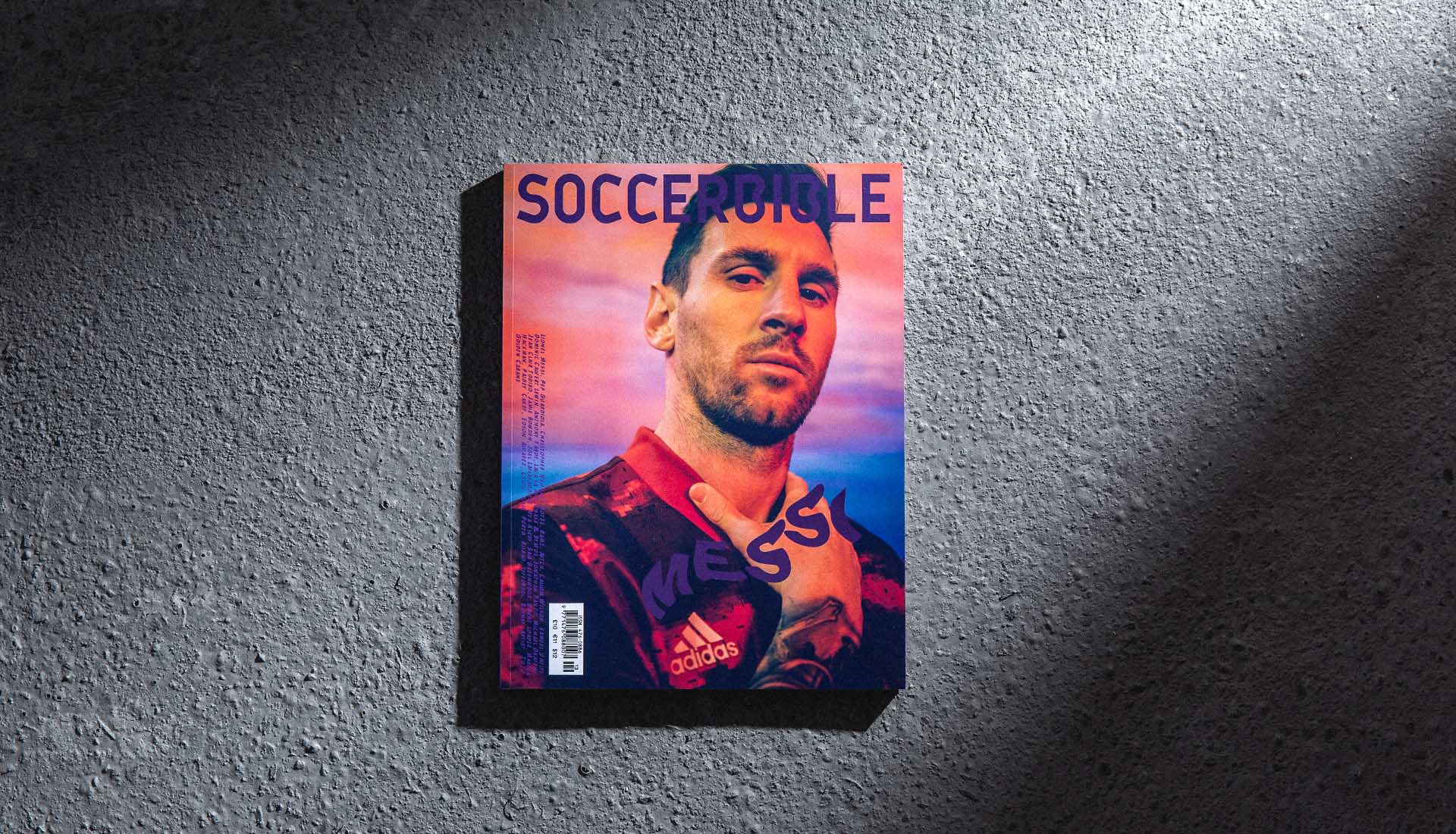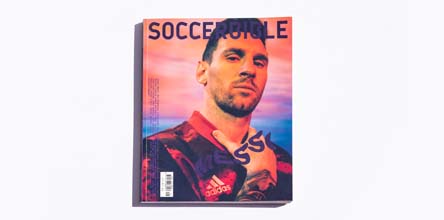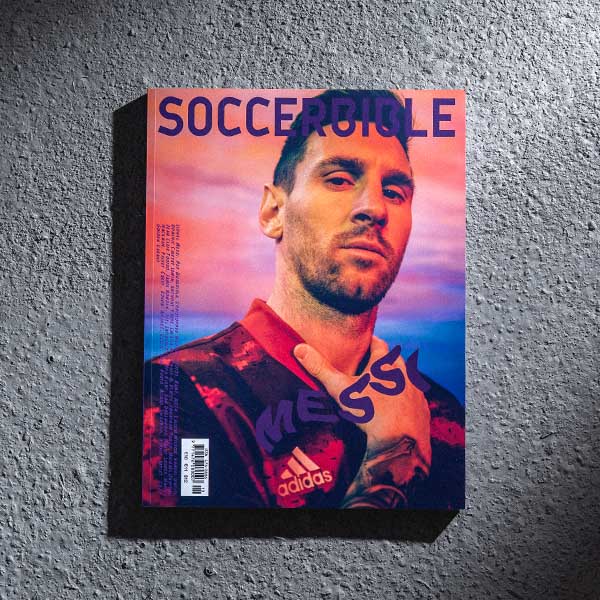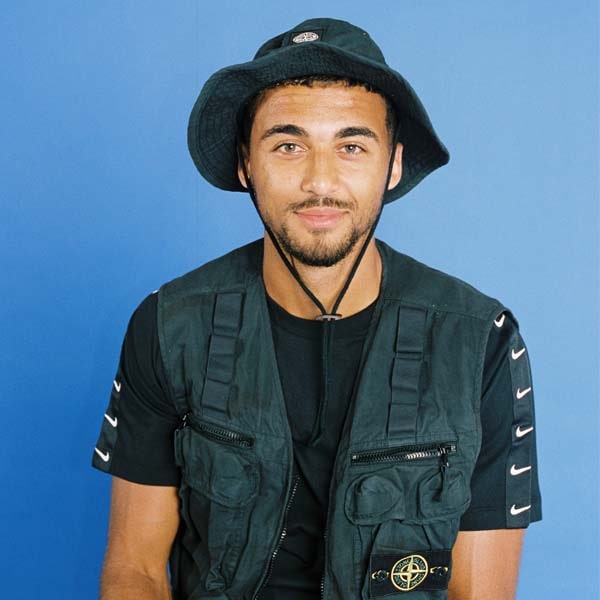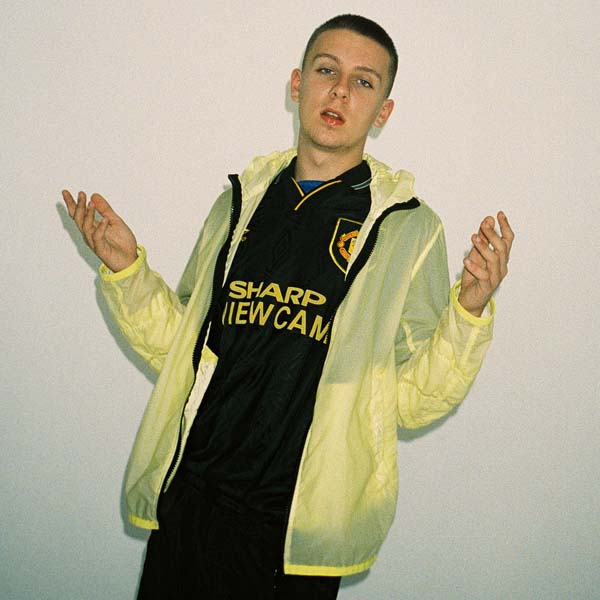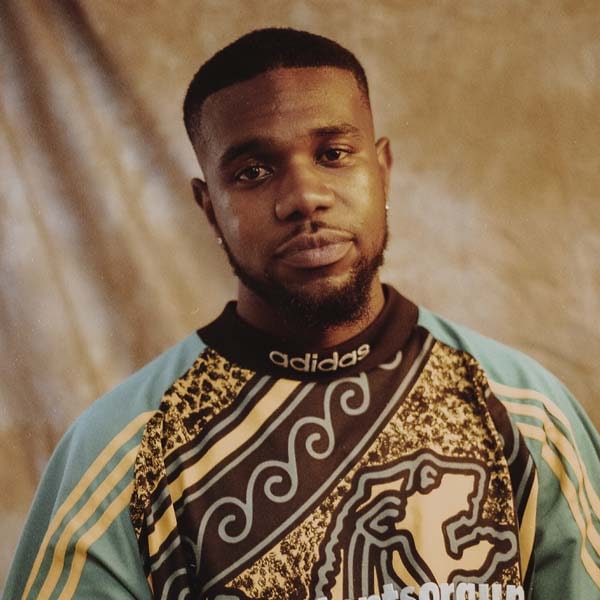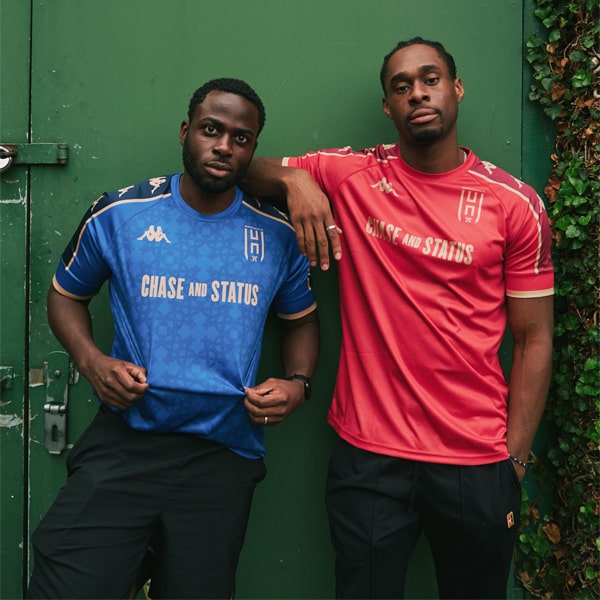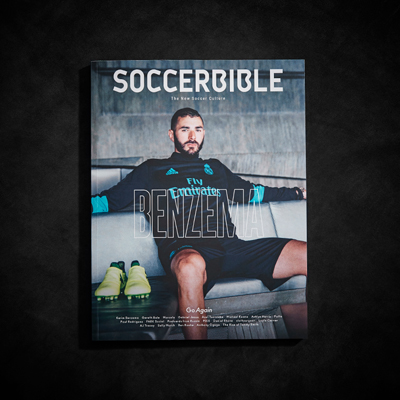How time flies. It’s now over a decade since London duo Chase & Status supercharged the UK’s electronic music scene with the deconstruction of genres that was their 2008 studio debut, More Than Alot. For context, around the same time, David Bentley was scoring that outrageous lobbed volley for Spurs in the famous 4-4 draw with Arsenal, and Liverpool were bringing on Sami Hyypia to secure a 1-0 win at Stamford Bridge against Luiz Felipe Scolari’s Chelsea.
Since then, Reds fan Saul Milton (Chase) and Gooner Will Kennard (Status) have continued to push the boundaries of bass music, building on early collaborations with the likes of Plan B and Kano to become something of a graduation school for up-and-coming artists of all styles and sounds. Over the course of five albums they’ve curated the playlist for a generation of dance music lovers, most recently going back to their roots with the no-nonsense dub and reggae-inspired beats of the appropriately named RTRN II JUNGLE.
Taking a well-earned break between shows during their predictably hectic Ibiza schedule, here one of England’s foremost double acts discuss the holy trinity of football, fashion and music in an exclusive sitdown on the island that’s become their second home.
Let’s start with some of your early memories of football. How did you first get into the game? Set the scene for us.
Saul: It would have been about 1986 or ’87. I was staying at my grandparents’ house up in Essex and it was a time when Liverpool reigned supreme. We went up to a Martin’s newsagents and I bought a copy of Match magazine and on the front it was Liverpool four, someone nil and I thought that looked incredible. My grandpa was a staunch Spurs fan, but I wasn’t going to be that. Then I fell in love with Liverpool, and all the players, and the Crown Paints kit – everything. And that was me for about eight years. I’ll never forget those times. Incredible.
Will: I became an Arsenal fan because my best friend at school’s dad basically played for them, in the “B” team. So I used to play with him and I was around Arsenal a lot. But actually one of my earliest memories was another kid I went to school with. He was a friend of the family, and we used to go down to Craven Cottage in the 80s. It must have been about ’85, I was about six years old. I’m not sure what division Fulham were in at the time, but I remember it was all-standing and you could drink glass bottles. And people were lobbing glass bottles onto the pitch, and onto each other. When I go to the Emirates now, I just think “This is a very tame, safe atmosphere”. It was mad in the 80s. It was such a different thing.
Saul: About ’89, ’90, my mum obviously thought she was being very kind, and she sent me away for two weeks to Manchester, to a football camp. It doesn’t exist now, because it was like a war school for kids, but with footballs. That kind of behaviour Will’s talking about, we saw these pictures of it going on at the football camp. If anything that was the kind of the younger hooligan section there, getting ready. Early training.
About ’89, ’90, my mum obviously thought she was being very kind, and she sent me away for two weeks to Manchester, to a football camp. It doesn’t exist now, because it was like a war school for kids, but with footballs"
What kind of age were you when music took over and became your main passion and focus?
Will: Ah man, pretty young. Probably in my teens. There’s that time when you start to get a bit more into music and you have more freedom away from your parents, going to house parties or whatever with your schoolmates. So quite early. I just started to become obsessed with music. Probably more than your average person anyway, because everyone’s kind of into music at that age.
Saul: I’d say about 12 years old.
Will: Yeah, in hindsight, I probably didn’t realise I was more obsessed than my other mates, I just thought we were all into it. I started trying to research stuff, trying to find out about all these weird scenes. And obviously it was way harder back then. You’d have to go into record stores and ask people and properly seek things out. It was a good way of showing your commitment, because now you can be quite fickle, whereas then it was such a commitment to get into dance music culture and the music itself.
Is it a bit like supporting a football team? In that once you join the club, that’s it, you’re in.
Will: It is. You give a lot back to it, and it’s a real community. Particularly then, maybe not now so much. I think back then, possibly because of the underground nature of it, being undiscovered, there was more of a club feel to it. Definitely reminiscent of supporting a football team, being in a little gang. It’s very similar.
Saul: There’s supporting a team, like knowing all the 11 players and the subs and the manager, and you’re like “I support so and so”, but when you’re balls deep, and you’ve read everything… I mean, I started playing guitar in about ’93, ’94, so I was losing touch before I fell in love with jungle. Obviously they’re quite polar types of music [guitar and dance], but I would go to similar places to get the stuff for it. I lived in town, so I would walk down to Chappell’s on Bond Street to get guitar stuff, then go via D’Arblay Street, Black Market, to get some records on the way home. So for me it was a real mishmash of completely different worlds. And one world dissipated and one world took over as I got older.
And those two clubs individually, Liverpool and Arsenal, what would you say defines them for each of you?
Will: Well, as I said initially, there are a variety of reasons why you get into a football team. Random things trigger it when you’re young and you just start loving different players. Obviously around that time, for me, Arsenal were the team. I guess it was easier then, I mean I was supporting Arsenal under George Graham and we were smashing it.
Saul: It was the characters really wasn’t it. The players didn’t look like the supermodels they are these days. You look at Beardsley, Jan Molby, Ian Rush, John Aldridge with big boy moustaches.
Will: Tough lads.
Saul: Yeah, and we wouldn’t have known about it at the time, we would have been too young to understand it, but to have a black man, John Barnes, No. 10, main player for Liverpool, main scorer, up front – that was a big deal.
How much do you enjoy the experience of going to football? It could be likened to going to a gig in some ways.
Will: Yeah, it’s more like going to a concert than a rave, I guess. I’m lucky that I’ve got a few friends who are season ticket holders who let me go with them. It’s brilliant going down there. Different in the ways we spoke about, compared to games in the 80s and 90s, when it was a bit more aggressive. Funnily enough, that was also reflected in going raving back then, there was way more of an edge to it. You’d have to be a bit more cautious, which made it more exciting, but also in some respects not as fun. Football is exactly the same.
Saul: It depends where you’re sitting doesn’t it. If you’re sitting in the more corporate areas, eating sandwiches and shit…
Will: [Laughs] That as well, definitely. But it’s always a pleasure to go and watch live football.
Is it strange to think that your tracks will probably have been played in pretty much every dressing room in the Premier League?
Will: [Laughs] We’d like to think that they have.
Saul: There’s an artist called Mele, who’s also a massive Reds fan, and he told us that in Steven Gerrard’s second autobiography, Gerrard says: “Before a game I like to put on ‘Blind Faith’ by Chase & Status.” And my wife’s like, hey, that’s a big deal. It’s very surreal, you know. It’s great though. We never expected those things, so to hear that was touching.
Are there any other players that you’d love to know listened to your music?
Saul: John Barnes.
Will: [Laughs] Yeah, seeing him going mad for one of our tunes would be pretty cool.
Saul: We had Peter Crouch come to one of our shows, and he did the dance.
Will: Ray Parlour always comes down as well. He loves it.
Have there been any instances where your music has taken you into unexpected places within football?
Will: Well probably the maddest thing we ended up doing was with Umbro in 2011, when we were picked to launch the England away kit. We were out on stage, wearing the new kit for the first time, and it was plastered all over billboards in London and across the UK. It was an amazing privilege to do that. There was all this great merch as well, and I managed to get one of the special bags they’d made for the players.
In Steven Gerrard’s second autobiography, Gerrard says: 'Before a game I like to put on Blind Faith by Chase & Status.' And my wife’s like, hey, that’s a big deal. It’s very surreal, you know"
Focusing on your music, you’ve done a lot of collaborations over the years. Have you enjoyed being able to put out such a broad spectrum of material?
Will: We’ve been blessed.
Saul: We’re very lucky to have been able to have a wishlist in our heads and make that shit happen, pretty much every time. So in that regard, yeah, our dreams have come true.
Will: At the time you don’t think about it, but in hindsight it has been amazing to move into different genres. Then you see we’ve got urban fans coming to our shows, because maybe they’re in between. And you’re just doing it by accident, you know. A bit like some of the single stuff, we’re not trying to get different fans, it’s just something we’re into. And then when they come to the shows, you can’t believe it. You get dads there, you get kids there – we’re very blessed.
You’ve broken new ground with your music and your collaborations. Is that something you set out to do?
Saul: No. Generally, what we like to do is take someone from their world, and basically put them in ours. But the way we try to do that is we like to write something with them in their world, something they’re very comfortable and familiar with, and then we’ll take the vocals and rework it into our world. And that’s what gives it the different kinds of flavours. Because usually if we get someone to do something they’re not familiar with, it never really works. They try to do what they think we want them to do, whereas we want an artist just to be who they are, and we can try and turn it into something that works for us.
How much do you enjoy live music and the atmosphere?
Will: You know, you forget how amazing it is until you’re actually out there with the crowd going nuts and the music going off. It’s an out of body experience in a way.
Saul: You really appreciate it more when you’re not doing it. If you go on a run of non-stop gigs for eight weeks and then you have a weekend off, first of all you’re like, great, some time off, but you also kind of feel a slight emptiness. You miss it. Then you realise, actually, this has a big effect on me. It’s hard not to take it for granted, because that’s how it goes. You do it so regularly that you just become accustomed to it. But then when you’re away from it, you really see the gravitas of it for you.
Another thing you’re great at is bringing younger or less experienced artists through, almost like a coach. Tom Grennan, for example.
Saul: It’s two-way. To want to work with these people, it means we’ve loved what we’ve heard. We didn’t care if they were established or absolute nobodies. We just had to work with them, end of story.
Will: Yeah, it’s selfish to start with.
Saul: And if they’re smart, which often they are, they’ll not only enjoy the experience of hopefully making a good song with us, but they’ll see a springboard or opportunity, and take it with both hands. And we love seeing that. You mentioned Tom Grennan. We’re privy to the shows he’s doing next year, and for this stage of his career – unbelievable. It makes me proud to see him perform and watch his clips online. When he gives a shoutout, it’s a nice feeling, you know. When we get the reciprocation and the appreciation like that, it does mean a lot.
Is it about looking for people with good character as well as a good sound then?
Saul: Yeah, although you’d never know that until we’d linked with them. When we first heard Maverick Sabre, we just heard our agent playing his voice on the phone, we said: “Get him in the studio! We don’t care, just get him in.” He could be the nastiest guy in the world, but with his voice, we had to work with him.
Will: Yeah, so it’s a bonus when they’re cool.
Lots of footballers are getting more and more into fashion. Have you seen much of that crossover between football, fashion and music?
Saul: A lot of them wear jewellery now. I’m into jewellery, so certain kinds of pages I look at, you always see, like, Arsenal players in there getting an iced-out diamond chain. That’s where the £130k-a-week goes. There’s that whole culture now, not only fashion, but accessories like jewellery. The big trend now is the bust-down watch, the Rollie, the AP, flooded in diamonds. It was always a kind of a hip-hop, gangster vibe, but now it’s the one, so you see loads of ballers with ridiculously iced-out watches. It’s cool to see the cultures melding, it’s really all coming into one these days.
You’ve achieved a hell of a lot in the last decade. Would you say your success has taken off the pressure a little bit and allowed you to experiment, or does the level of expectation add to it?
Will: Well I’d rather have that successful back catalogue to fall back on, so that does take off the pressure I guess. And in terms of personal ambition, a lot of boxes have been ticked. All of our dreams, when we were 15, 16, thinking “How are we going to do this?” And it’s gone way beyond that, so that is amazing. But the reason I think we got there is because we were willing to just naturally put pressure on ourselves. And I think it’s just in our characters, so I don’t think it just turns off. Whatever you’re doing you’re like “I need to be doing a bit better!”
Saul: And we still feel like that now.
Will: Yeah, it never really goes away.
Saul: We were lucky enough to have chart success or whatever, but those things kind of just happened, and also, it’s the way things were situated. We were a new act coming through in the public’s eyes, exciting new guys with different-sounding music. Then as times change, what’s in the charts changes. So no, we have no pressure at all to try to replicate any of that kind of success in that regard. But we still put the pressure on ourselves to, hopefully, try to make better music each time. And if we do that, we should be alright.
Where do you find your consistency through all the highs and lows of being in a successful band?
Will: Staying sane creatively. Because with the highs, things get more complicated. The stakes get higher, more people are involved. Loads more people, it used to just be me and Saul in a room. Suddenly you get management, crew, and the more people you get, the more you’re like, what the fuck are you doing? Everyone’s interested now, because maybe you’re making more money. So retaining that purity of self, what we are actually doing, what we want to do, is very hard. I think that’s the same for every band that has success. You start being in danger of going down paths that you’re not even sure you want to, and suddenly you’re like, why are we here? That’s why RTRN II JUNGLE was so important to us, because it was like, you know what, this is what we’re about, and this is what we’ll do. Just really getting back to the original vision. We’ve been lucky to play that game well. A lot of bands disappear. They just get lost in the madness – I can see now, it’s fucking hard.
Saul: For us, we’re lucky that it’s all we know. We came from a scene and we’ve had success. We’re part of something. Let’s say tomorrow comes and there’s no more major label stuff from us, no more big shit, no more festival stuff, it’s over. We still carry on in the drum and bass scene, as part of the scene. And that was our dream when we were kids. Other bands come in out of nowhere and just blow up. But if they don’t maintain that, it’s done. And it’s so cut-throat out there now. You can have the biggest No.1 of all time, and then six months later, no one cares. You get lost in the melee. Whereas thankfully, we’re from a great scene, and by doing RTRN II JUNGLE, not only have we scratched that itch to get really underground and creative again, but we’ve also given more to the scene and we’ve got that robustness to do more and more with those guys. It’s exciting.
Read the full interview with Chase & Status in SoccerBible Magazine Issue 13. Pick up your copy here.














